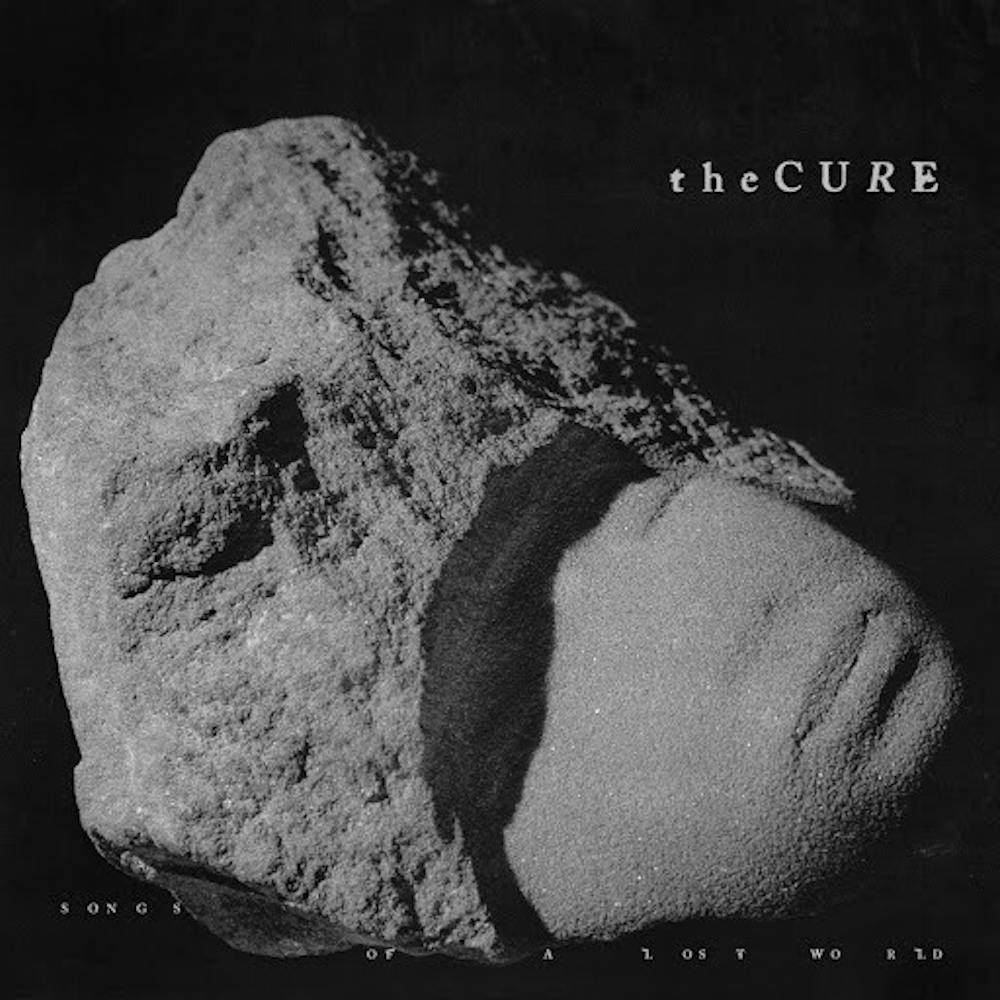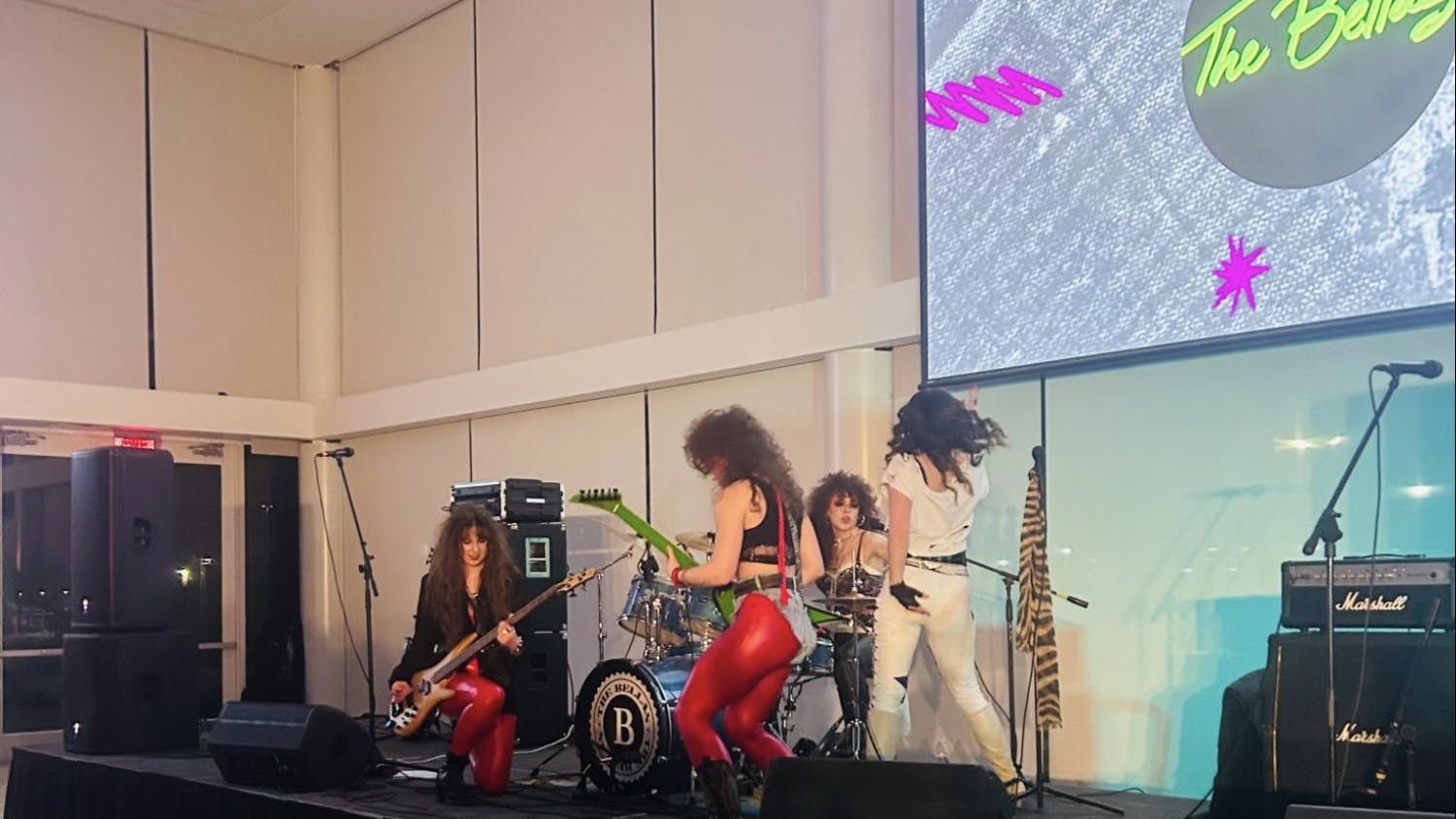By Andre Paras
Staff Writer
After 16 years, the legendary post-punk rockers of The Cure are back with their long-awaited album, “Songs of A Lost World,” released on Nov. 1.
Five years in the making, the record was originally set to release in 2019 with the working title “Live From The Moon,” However, Smith kept returning to the LP with new changes, preventing it from seeing the light of day until now.
With The Cure active for nearly 50 years, you’ve likely heard some of the band’s biggest hits of the 20th century. For longtime fans, there are similarities to past sounds and even self-referential moments to the band’s old tracks.
However, instead of the group’s bright love songs, “Songs of A Lost World” is a trip to the band’s gothic and melancholic side of its songwriting and instrumentals. This was sparked by lead singer-songwriter Robert Smith’s recent family tragedy.
“It’s very much on the darker side of the spectrum. I lost my mother and my father and my brother recently, and obviously it affected me,” Smith told NME in 2019. “It’s not relentlessly doom and gloom. It has soundscapes on it, like ‘Disintegration,’ I suppose.”
The LP opens with the lead single “Alone,” giving listeners a grand, extended introduction to the album’s dreamy yet eerie and ghostly ambiance. Lyrically, this song was inspired by the poem “Dregs,” from poet Ernest Dowson.
After the entire band of instruments comes in, and a lulling piano melody comes in and out of the song, Smith’s vocals enter around halfway through. As someone only familiar with the band’s older work, I thought Smith’s vocal performance still sounded as great as it used to. His inflections haven’t changed and are reminiscent of their 1989 release “Disintegration,” as mentioned previously.
“It’s the track that unlocked the record; as soon as we had that piece of music recorded, I knew it was the opening song, and I felt the whole album come into focus,” Smith stated in a press release.
Up next is track two, “And Nothing Is Forever,” with a nice piano intro. The track overall is slow and features a lot of strings throughout. Smith writes and yearns for an unconditional lover to stay with until the end.
Through all of its passion and lyrical imagery, it presents these ideas in a high-stakes fashion. The phrase “However far away” is repeated throughout the song, likely referencing “Lovesong,” one of the group’s greatest hits from 1989.
“Drone:Nodrone” spices things up in its sound as a total glam rocker. It features a lush guitar shredding throughout with a heavy wah-wah pedal effect and even its own solo. It is unlike any song from The Cure I’ve heard before.
“I Can Never Say Goodbye” is a transparent track written on the death of Smith’s brother, but it finds more of its catharsis in its instrumentals to describe how he was feeling at the time. It features more literary influence, referencing “Macbeth” with the repeating phrase, “Something wicked this way comes,” foreshadowing the reveal of his brother’s death in the song.
“I wrote this song a lot of different ways, until I hit on a very simple narrative of what actually happened on the night he died,” Smith told the Los Angeles Times.
“Endsong” is a 10-minute opus that serves as the album’s closer with an instrumental fueling the desolate sound of “Songs Of A Lost World.” Smith navigates his dreams as a young boy through a night sky, which reminded him of stargazing at the Apollo 11 landing with his dad. This is also the inspiration Smith had for the record’s original working title.
Through all of this, Smith reflects on his age, unfulfilled dreams and sense of belonging after the loss of his family. He ends the song by repeating, “Left alone with nothing at the end of every song,” alluding to the same lyrics from the album’s opener. This likely represents the never-ending void of the LP, an unfortunate but well-crafted nihilistic bookend to this record.
Given the wait it took for fans to finally receive this album, who knows if The Cure has any new music left with Smith now at the age of 65. He’s told The Times that he’ll continue to play with the band until their 50th anniversary in 2028.
This shouldn’t alarm devoted fans too much, as Smith said in 2019, “Being the contrarian that I am, I’d be unhappy if [“Songs of A Lost World”] was the last one. We’ll be onstage tomorrow and I’ll be saying to them, ‘This is the last time in Paris,’ and they’ll look at me and shrug their shoulders.”
No matter what happens, this decade-spanning run of the band has been infinitely impressive, and this album is only the cherry on top.
“Songs Of A Lost World” is arguably one of the greatest records The Cure has put out in their expansive discography.







